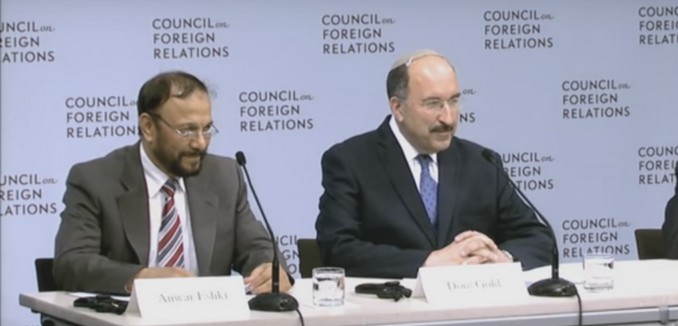Israel is intensifying efforts to strengthen ties with Sunni Arab states in the wake of rising regional instability following the nuclear deal with Iran, The Wall Street Journal reported (Google link) on Thursday.
The Journal identified several public examples of rapprochement between Israel and Arab states, all made in an effort “to counter Iranian influence and the threat of Islamic extremism.” In November, Israel announced that it plans to open a diplomatic mission to the International Renewable Energy Agency in the United Arab Emirates. Dore Gold, the director general of Israel’s foreign ministry, met publicly with retired Saudi general Anwar Eshki in June to discuss their shared concerns about Iran’s activities across the region.
While there are remaining obstacles to Israel developing full relations with Arab countries, the Journal observed that Gold is dedicated to “building better diplomatic, commercial and intelligence ties.”
The recent torching of the Saudi embassy in Iran and subsequent diplomatic fallout between Riyadh’s allies and Tehran “have underlined how common ground appears to be growing.”
“We have the same understanding of the region,” said Tzipi Livni, a senior Israeli opposition politician and former foreign minister. “This is the basis for an alliance.”
According to an unnamed Israeli official, there has been an “intensification” of Israel’s relationship with Arab states in the past six months. “Israel is on the same side,” the official emphasized.
In addition to Israel’s growing ties with the Gulf states, the Journal reported that Israel’s links to Egypt have also been expanding. In particular, intelligence sharing between Israel and Egypt has increased as both countries work to defeat ISIS in the Sinai.
In Confidence Game: Losing American Support the Gulf States Scramble, which was published in the January 2014 issue of The Tower Magazine, Jonathan Spyer observed:
An increasing body of evidence has begun pointing to a major shift in American foreign policy in the Middle East. Over the course of the Obama Administration’s tenure, amid the turmoil of the Arab spring, the United States has shown itself unwilling to defend some of its traditional allies (such as the military in Egypt), or to stand by its own threats and red lines (such as punishing the Syrian regime for using chemical weapons); in many cases willing to cede significant influence to other outside powers (such as Russia); and to attempt to reach a nuclear agreement with Iran that is far more conciliatory to Iranian demands than had been the previous policy (such as allowing for uranium enrichment).
Much analysis and attention has been focused on the implications for Israel of these changes in American policy. But Israel is not the biggest loser in the region. On the contrary, Israel is far from isolated in the new Middle East. In fact, its more stable and western-oriented Arab neighbors seem to have more in common with the foreign policy perspective of the Jewish state than at any time in recent history.
Instead, those who have the most to lose are the oil-rich states of the Persian Gulf, especially Saudi Arabia. Control of the Gulf, which is vital to global energy supplies and thus the global economy as a whole, has been the linchpin of American policy in the Middle East for the last half-century. A strong alliance with the Arab monarchies that dominate the Gulf, fueled by credibility of American power, has been at the core of this policy, and this—American military credibility and steadfastness to longstanding foreign policy partnerships—is what appears to be eroding, and causing nothing short of alarm among Gulf leaders.
[Photo: Council on Foreign Relations / YouTube ]




